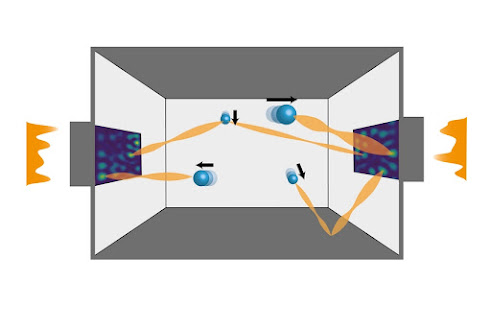Bacteria of the species Pseudomonas aeruginosa are antibiotic-resistant hospital germs that can enter blood, lungs and other tissues through wounds and cause life-threatening infections. In a joint project, researchers from the Universities of Freiburg and Strasbourg in France have discovered a mechanism that likely contributes to the severity of P. aeruginosa infections. At the same time, it could be a target for future treatments. The results recently appeared in the journal EMBO Reports.
Many bacterial species use sugar-binding molecules called lectins to attach to and invade host cells. Lectins can also influence the immune response to bacterial infections. However, these functions have hardly been researched so far. A research consortium led by Prof. Dr. Winfried Römer from the Cluster of Excellence CIBSS - Centre for Integrative Biological Signaling Studies at the University of Freiburg and Prof. Dr. Christopher G. Mueller from the IBMC - Institute of Molecular and Cell Biology at the CNRS/University of Strasbourg has investigated the effect of the lectin LecB from P. aeruginosa on the immune system. It found that isolated LecB can render immune cells ineffective: The cells are then no longer able to migrate through the body and trigger an immune response. The administration of a substance directed against LecB prevented this effect and led to the immune cells being able to move unhindered again.



.jpg)











.jpg)
